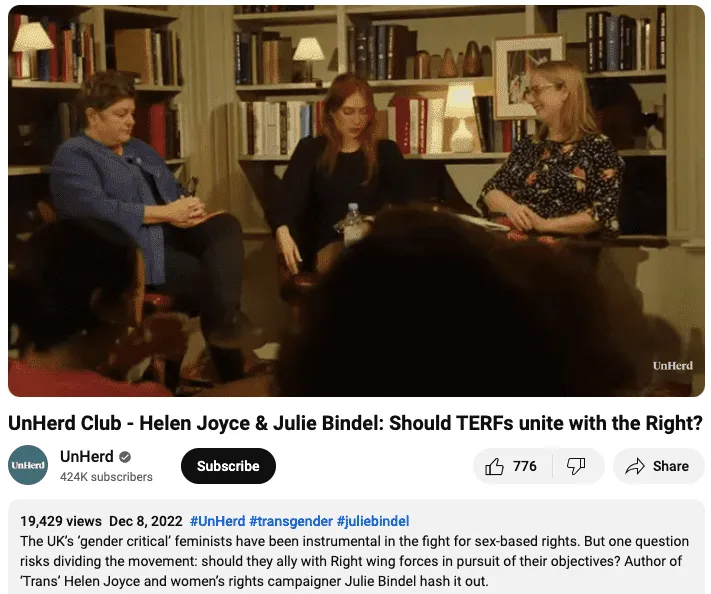Blog

5 quick ideas about why and how to resist
The rich already run everything, and they’re grabbing more power. Build your power with others and find new ways to resist. We have ways to make things, communicate, and live that don’t depend on corporations. Maybe we forgot. But we can do things on our own.

Anti-trans feminism since the 1960s
After a couple of recent essays by Sophie Lewis chronicling this movement. Particularly because the anti-trans movement is fond of suggesting that trans people sprang into existence yesterday, I’m fascinated with timelines.

Would you work with the ‘Alliance Defending Freedom’?
A 2022 Bindel–Joyce debate in which Joyce calls my gender ‘an attack on the whole institution of civilization’. She thinks she’s preserving ‘the Enlightenment,’ ‘evidence,’ ‘stable meanings,’ ‘how you do science’, ‘the whole institution of civilization.’

The Texas GOP platform is riveting(ly bad) political reading
I could not tear myself away from it. The Texas GOP’s “Temporary Platform and Resolutions” packs in a huge amount of religious superiority, prejudice, and self-contradiction.

January 6 — and transphobia — make some people feel empowered
They enjoy the illusion that they’re the deciders. Post-2020 Trump supporters believe they have the power to decide how others already voted—and, if they don’t get their way, they’ll force it.

Why the Republicans chose Mike Johnson
He’s been made House Speaker because he’s serving their goals. Their goal is patriarchy, white Christian nationalism, and unfettered environmental destruction. They will make elections obsolete if they can.

The biggest political donation in U.S. history is funding anti-trans laws
Anti-trans strategy isn’t invented by ‘concerned parents.’ It’s paid for. Laws against gender-affirming care aren’t the result of a concerned parent movement. They’re a well-funded political strategy.

What does Twitter think ‘destroy transgenderism’ means?
When Matt Walsh said it, what did his Twitter followers hear? Children are ‘but one phase in the overall war,’ Walsh said. He means he does not accept transgender adults either. And he is waging war on everyone.

CPAC Transphobia, March 2023
When they can’t possibly be worse, they find a way. He’s still on that horse, and so is the whole Republican party. At CPAC, Trump warned that the country has plunged into a ‘filthy communist nightmare.’
